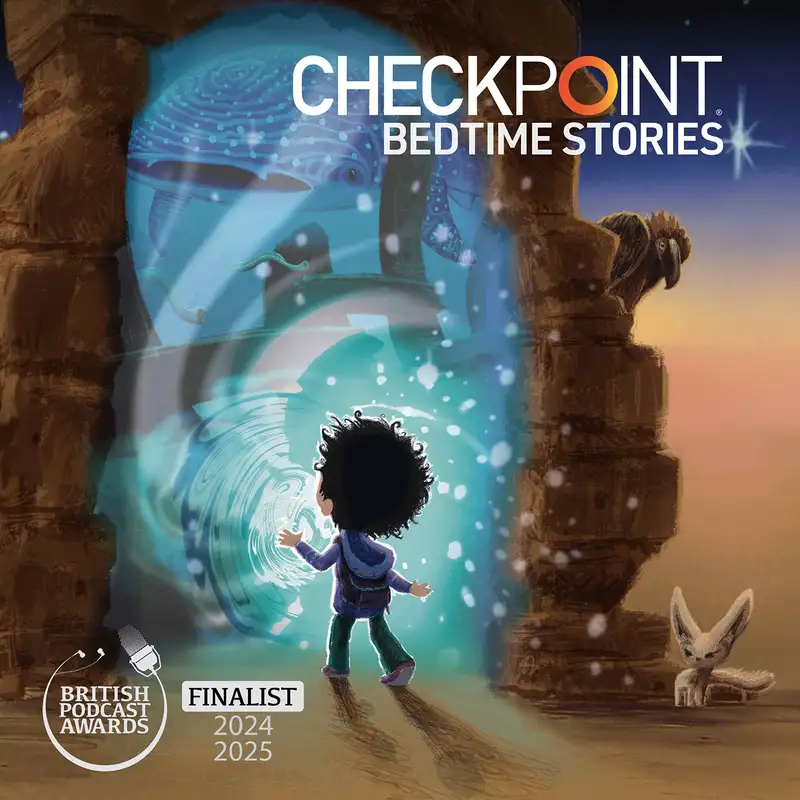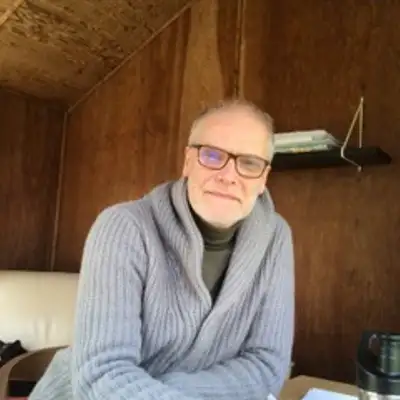Windbound
Windbound
Snuggle down and cosy up for tonight you cross the ocean in the wonderful world of Windbound.
You wake to find yourself lying on a bed of fragrant grass rich with the scent of wildflowers. The breeze that gently blows across your face carries with it the faintest aroma of the sea. Sitting up, you survey the landscape. You discover you are on a gentle slope which turns to sand below you as stretches out to meet the water’s edge. Turning your head, you can see the land rise behind you before reaching the summit where the rich, green grass and blue sky meet. Looking back down, you inhale deeply, get up and instinctively climb upwards. From the top of the hill, you are surprised to find you are at the centre of a very small island. There is little vegetation other than the lush grass and a few kojiberry bushes. You search in vain for a source of fresh water. You quickly realise that this island has insufficient resources to sustain you or any other life. Shading your eyes from the glare of the sun, you scan the sea and are excited to discover several more islands. The nearest one is much larger than the one you are standing on and is covered in trees. You are a strong swimmer, and the sea is calm, but you calculate that the island is too far away to take the risk. Instead, you turn your attention to finding another way to make the crossing.
You begin by walking the shoreline in search of driftwood. You find several pieces, but they are too small to make anything other than a fire. As you have no intention of spending the night on the island, you leave them where they are. The only abundant resource you can find is the grass, which in some places grows as high as your waist. It has dried in the hot sun and as you walk through it, it makes a pleasant rustling sound. A plan begins to form in your mind. The work will not be difficult, but it will require patience and many hours to complete.
You locate the areas where the grass grows tallest and pull it from the ground. Using your teeth, you remove the roots. Carefully, you begin weaving three stalks together adding more as the plait or braid grows in length. When you have crafted several long lengths, you plait them together to make a much thicker and stronger rope. Repeating the process, you plait successive lengths together until you have a rope as thick as your arm. You work consistently developing a natural rhythm, only stopping occasionally to appease your hunger with a handful of kojiberries. Your earlier exploration of the island didn’t uncover any source of drinkable water and you know the juice contained in the kojiberries will only stave off thirst for so long. Your need to find fresh water inspires you to continue tirelessly plaiting the grass. Eventually, you have crafted a considerable amount of rope in two different sizes. The larger one is fairly rigid and difficult to bend. The other is as thin as your finger and very flexible. Using this more pliable rope, you bind the thicker pieces together until you have constructed a board as tall and as wide as your body. One end is more pointed than the other and should create less resistance as you move through the water.
Before you start for the next island, you use the remaining rope to weave a small pouch. You include a flap and a long shoulder strap. It is not certain that you will reach the island before nightfall and finding a source of food may be difficult. You fill the pouch with kojiberries, put your board under your arm and walk across the sand to the sea.
Standing on the shoreline, you are struck by the enormity of the task that lies before you. From the hill, the island seemed much closer; now you sense how far away it is and how small you are. You take a moment to assess the situation. You know your primitive boat or board is not particularly strong and can’t last in the water for too long, but you are reassured by the calmness of the sea. And the sky shows no signs of the weather changing any time soon. A flat sea will make paddling much easier too. You wish you had found sufficient driftwood to construct an oar, but you are strong and quite capable of using your hands to propel yourself through the water. Having made your decision, you stride purposefully into the sea and climb aboard. Lying down with your arms and hands in the warm water the board is surprisingly buoyant and moves forward easily as you begin to paddle.
After a while you fall into a relaxed but efficient rhythm. You have discovered through a process of trial and error that cupping your hands as if you were holding an egg produces the most thrust with the least amount of effort. You have also found that keeping your arms slightly bent, as they move through the water, is less tiring. Occasionally, you raise your head from the board to make sure you are heading for the island. You are worried that one of your arms may be stronger than the other and so cause you to turn, or that you might encounter currents that drag you off course.
As you get closer to the island, details begin to appear. You now see that what you first thought were trees are actually mature bamboo. It covers the lower part of the island, but not the rocky areas where you can see sunlight glinting off the water. This makes you very happy. Although you have perfected the skill of paddling without causing too much of a splash, you have not been able to prevent some seawater getting on your face and lips. Instinctively, you lick your lips and taste the salt, increasing your growing thirst. For a moment you consider trying to access the kojiberries in your pouch but decide against it. The risk of slipping from the board is too great and you may not be able to get back on. With renewed determination you begin to take deeper breaths and increase your stroke rate.
Glancing over your shoulder, you see the Sun is getting lower in the sky and you wonder how much daylight is left. You also notice a change in the colour of the water. At first you think you might be entering a cross current, but, looking more closely, you see that the water is getting shallower. You can make out the shape of rocks on the sand beneath you and you sense a slight increase in the temperature of the water. You lift your head and discover that you are not far from the island.
You begin to notice a change in the board beneath you. It is becoming less rigid and is undulating with each stroke of your arms. Sea water is lapping over the front, forcing you to keep your head in the air. You realise that the grass has become saturated and is no longer able to bear your weight. You take the decision to swim the last few metres. Filling your lungs with air, you push the sodden board away from you and roll into the sea. As you submerge beneath the surface, you are surprised to find yourself feeling the seabed beneath you. Standing up, you discover the water only reaches your waist. You take some long deep breaths, grab the sodden board and wait for your heart to stop racing. You are happy to have arrived safely, grateful the board didn’t give up earlier which would have made your journey far more difficult. You wade towards the beach dragging the board behind you. As the water becomes shallower, you find it easier to lift your feet clear of the surface with each step, rather than pushing against the water. Stepping onto dry sand, you let go of the board and look around. Movement catches your eye, and you think there are animals amongst the bamboo before realising it is just the shadows cast by the last rays of the sun. You want to rest but know that you must find fresh water and quench your thirst before darkness falls.
Moving inland, you can hear the sound of water cascading over rock before you see a waterfall. It’s not particularly large but there is room for you to stand beneath it. Closing your eyes, you throw your head back and gulp down the water as fast as you can. Then, standing quite still, you can finally relax and allow the water to wash away the salt from your skin and hair. Refreshed, you return to the beach. Away from the waterfall you are surprised by how quiet the island is. You expected to hear birds or other animals, but it would appear that this island doesn’t contain any. You reach into your pouch and eat the last of your kojiberries.
A brief exploration of your immediate surroundings gets your mind racing and you appreciate the potential of the resources this island offers. Amongst the rocky outcrops that punctuate the sand are perfectly smooth, grey pebbles in a variety of sizes. These you recognise as flint. When carefully broken, they produce pieces with razor sharp edges. There is also an abundant supply of driftwood. Dismantling your board will provide some rope for binding and you will be able to craft an axe, perfect for chopping down bamboo. Then you can construct a raft, which will allow you to explore other islands. Your board may not contain enough rope to rig a mast, but you know you can weave a sail from bamboo leaves. However, you will have to find more grass if you need more rope. You will need to explore the island fully to see what other resources you can find. You are excited to see what you will discover and how far your innovation and creativity can take you.
You are brought back to the present moment by waves washing over your feet. The tide is moving in, and the sun is sitting on the horizon. As you observe the flint pebbles disappearing beneath the encroaching sea, you realise that your plans will have to wait. Looking over your shoulder, you see the hightide mark, the area where bits of broken shell and seaweed and driftwood are pushed as far as the sea can reach. There is a thin strip of sand between the mark and the darkening bamboo forest where you can safely spend the night. Moving to the dry sand, you sit down and are pleased to find that it is very soft and comfortable. You eat the last of your kojiberries and are content. You’re tired now. Your muscles ache and your eyelids are heavy. Lying down you feel the warm breeze caress your skin and your breathing slows to the rhythm of the waves as they gently fold over the beach. Closing your eyes, you drift away, awaiting your next adventure.
Creators and Guests




